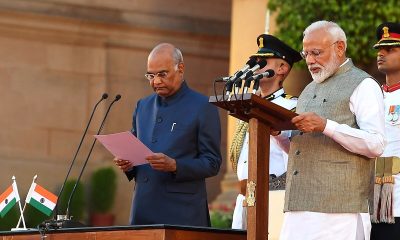
However, there is some evidence to suggest that these personality changes aren’t all psychological. Biology may play a role, too. (Pexels Photo)
Changes in personality following a heart transplant have been noted pretty much ever since transplants began. In one case, a person who hated classical music developed a passion for the genre after receiving a musician’s heart. The recipient later died holding a violin case.
In another case, a 45-year-old man remarked how, since receiving the heart of a 17-year-old boy, he loves to put on headphones and listen to loud music – something he had never done before the transplant.
A recent study suggests that heart transplant recipients may not be unique in experiencing personality changes. These changes can occur following the transplantation of any organ.
What might explain this? One suggestion could be that this is a placebo effect where the overwhelming joy of receiving a new lease on life gives the person a sunnier disposition. Other transplant recipients suffer from guilt and bouts of depression and other psychological issues that might also be seen as personality changes.
However, there is some evidence to suggest that these personality changes aren’t all psychological. Biology may play a role, too.
The cells of the transplanted organ will perform their expected function – heart cells will beat, kidney cells will filter and liver cells will metabolise – but they also play a role elsewhere in the body. Many organs and their cells release hormones or signalling molecules that have an effect locally and elsewhere in the body.
The heart seems to be most commonly associated with personality changes. The chambers release peptide hormones, including “atrial natriuretic peptide” and “brain natriuretic peptide”, which help regulate the balance of fluid in the body by affecting the kidneys.
They also play a role in electrolyte balance and inhibiting the activity of the part of our nervous system responsible for the fight-or-flight response. The cells in charge of this are in the hypothalamus – a part of the brain that plays a role in everything from homeostasis (balancing biological systems) to mood.
So the donor organ, which may have a different base level of hormones and peptide production from the original organ, could change the recipient’s mood and personality through the substances it releases.
It has been shown that natriuretic peptide levels are higher following transplantation – and never return to normal. Although some of the elevation is probably a response to the trauma of surgery, it may not account for everything.
Memories stored outside the brain
The body stores memories in the brain. We access them when thinking or they can be triggered by sight or smell. But memories are basically neurochemical processes where nerves convey impulses to each other and exchange specialised chemicals (neurotransmitters) at the interface between them.
While in transplant surgery, many of the nerves that govern the function of the organ are cut and are not able to be reattached, this doesn’t mean that the nerves within the organ do not still function. In fact, there is evidence that they may be partially restored a year after surgery.
These neurochemical actions and interactions could feed into the nervous system of the recipient, enacting a physiological response that then affects the recipient’s personality according to memories from the donor.
We know that cells from the donor are found circulating in the recipient’s body and donor DNA is seen in the recipient’s body two years after the transplant. This again poses the question of where the DNA goes and what actions it may have.
One thing it does is stimulate immune responses. These immune responses may be enough to trigger personality changes as long-term, low-level inflammation is known to be able to change personality traits, such as extroversion and conscientiousness.
Whichever mechanism, or combination of mechanisms, is responsible, this area of research warrants further investigation so that recipients can understand the physical and psychological changes that could occur following surgery.![]()
![]()
Adam Taylor, Professor and Director of the Clinical Anatomy Learning Centre, Lancaster University
This article is republished from The Conversation under a Creative Commons license. Read the original article.





















